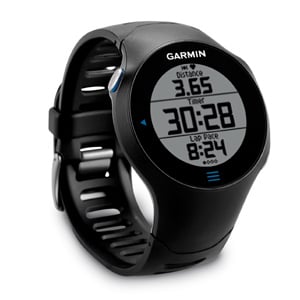Maybe it has been part of their New Year's Resolutions or just a general desire to get fit, but several friends have recently asked me about training to run a half marathon like the Inaugural Rock "n" Roll Marathon (and Half Marathon).
Maybe they think I know something because I've carried a sign...
...or simply because...
...and tell everyone about it on facebook. (...with apologies to my non-running friends whom I drive insane.)
But for whatever reason people feel I might have some ideas on the topic of Running, here are my top 10 suggestions and thoughts...
- Run-Walk as advocated by Jeff Galloway. If you think you cannot run 26.2 miles, 13.1 miles, or even 3.1 miles (5 kilometers), know that you DON"T HAVE TO with a Run-Walk method! You only have to run for maybe 2 minutes. (Actually, Jeff Galloway himself typically runs for only 30 seconds or 45 seconds at a time.) You can do that, right? Even most starting runners find they can run for at least 2 minutes. (Note: There are actually physiological reasons why this is the case where longer than two minutes of exercise typically requires "aerobic" (oxygen-based) metabolism for fueling rather than using the stored energy . No wonder you are breathing so hard so quickly!)
Then, after a 2 minute run, you get a break! Just walk...for a minute. Then, repeat for as long as you plan to "run."
So what does this do? Most importantly, it engages different systems--fueling, muscles, etc. for your run. For instance, you give your "running muscles" a chance to rest while your "walking muscles" are active. You give your body a chance to clear built up lactic acid. You give your heart rate a break. And maybe most importantly, you give your mind a chance to recover and take stock of how things are progressing--and if you are running with friends, it's a chance to socialize for a minute.
A second observation I've had on Run-Walk is that you run faster. For instance, instead of running a steady 11:00 minute/mile, you might run a 9:00 minute/mile pace for two minutes and then walk at an 18 minute/mile pace--for an overall 10:48 pace. And you'll feel better! Seriously, try it. (And I'm talking about distances of maybe 10K and longer--you know, where you might try a 10:00 minute/mile pace at the start but get slower...and slower...and slower as the distance adds up.) And once you get used to the run portion being (in my example) 9:00/mile, then you'll get faster overall by changing your Run-Walk ratio..
That is, once you try at a 2:1 ratio, you can increase that to 2.5:1, 3:1, 4:1, and to 5:1 over time as you develop as a runner. ...but don't go past 5:1 for your long, slow runs. If you want to run a RACE at something else, go for it. (I now RUN half marathons without walk breaks--except maybe around water stops--but I still TRAIN using a 5:1 ratio.)
According to Jeff Galloway, Run-Walk also dramatically reduces the risk of injury--especially for those of us in the 50+ age range! This makes sense to me because running at a steady-pace for a long duration means you are using the same muscles with no rest--and you tend to ignore signs of strains/pains/injury until it's too late.
Oh, and for those people who claim "Run-Walk isn't really Running," ask if they don't walk for part of their long distance races! Even among my strongest running friends, I don't know many who don't walk some during a marathon.
- - - - - - Train for a half marathon for roughly 13 weeks (= 13 miles) and for a full marathon for roughly 26 weeks. There are dozens of training programs, and I don't have any specific ones I recommend, but the basics are run (only) three times per week including a long run, typically on Saturday. And for the long runs, add one mile per week (starting with 3 miles) but once you get to 8 miles, add two miles every other week and take a shorter long run on the alternating Saturdays. For instance, run distances of: 3-4-5-6-7-8-6-10-6-12-6-14-6 for your 13 Saturdays. And for short mid-week runs, run 3 miles one day and 5 miles another day. Ideally you would have specific objectives for these mid-week runs (like hills, speedwork, tempo, lactate-threshold, etc.)--but for your first half or full marathon, forget about all that. Just get in the habit of running regularly!- - - - -
- Celebrate your new records/accomplishments! I loved every time I ran for my longest distance ever! And when it comes to any time goals, forget them for your first race. (In fact, while I wouldn't suggest taking it deliberately slowly, my father always suggested not to do too well on "pre-tests." He wasn't talking about running, but if you do too well, you'll have a harder time beating your "PR" (Personal Record) in any future races.)- - - - -
- Use technology! I love my Garmin watch, and others find mobile phone apps like Endomondo, MapMyRun, Runkeeper, iRunner, or even Garmin Fit to be encouraging and helpful. Personally, I tend not to use mobile phone apps and tend not to run with music except on longer runs. I like the peacefulness of getting outside and enjoying the sites and sounds.
Most Garmin watches have an interval timer for your Run-Walk timing, and some of the mobile phone apps do too. But sometimes simple is best (and the battery lasts longer) using a "Gymboss"...
- - - - - - Speaking of technology, training with a heart rate monitor can be helpful. This helps you learn what heart rate works for you for endurance. I decided to run my most recent half marathon watching my heart rate rather than my pace, and I got a significant PR and won third place in my age group. (I found I could sustain a 158 bpm rate for most of the race--admittedly NOT doing Run-Walk.)- - - - -
- Know that 10% to 20% of your training runs will *suck*. It could be due to your mood, the weather, or something physical bothering you. Yet I guarantee that afterwards, even a sucky run will be better than no run!- - - - -
- Practice "fueling" to see what works for you--and start early (before you "feel" like you need something), but don't overdo it. For me on a half marathon, that means taking my first 100 calorie "Gu" at 5 miles and then probably again at 8 miles and again at 10 miles. Any more than that is unneeded, and anything in the last 30 minutes of your run doesn't have time to digest and be helpful.
- - - - - - Train with friends. Personally, I find I can do solo runs for about 14 miles, but then I fall apart mentally. By running with friends, I've run 32 miles (over 50K).- - - - -
- Be signed up for future races when you are doing one. OK, so maybe this doesn't make sense if your goal is a bucket list item--a one-time event--but I find that if I'm signed up for a future race, I'm less likely to be disappointed with the "current" race because I know when my next opportunity is to redeem myself if my race doesn't go as planned/hoped.- - - - -
- AND...Don't be surprised if you fall in love with Running!- - - - -
- (Bonus Idea) After your race, enjoy this video--one of my favorite commercials of all time. (Note: I own a Honda CR-V, so that's why I like it all the more.)
Enjoy your run!

.jpg)



.jpg)
